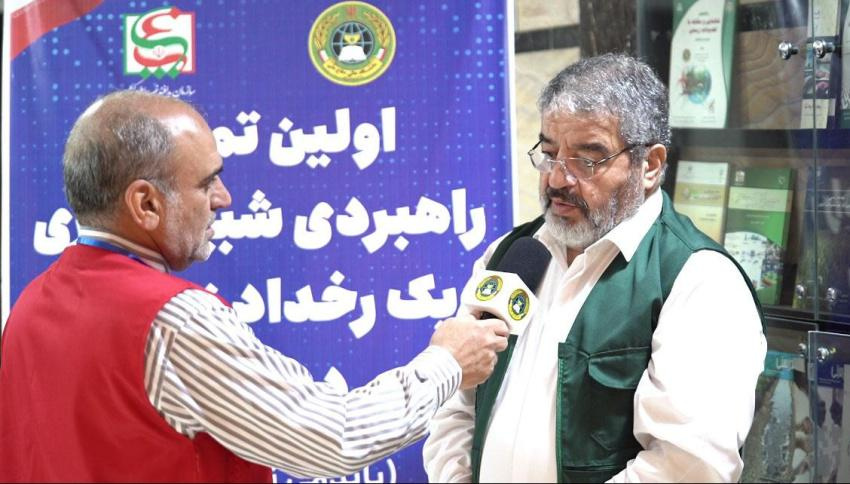Assessment of the Head of the Passive Defense Organization on the Strategic Exercise Simulating an Unknown Pandemic

Brigadier General Gholamreza Jalali, Head of the Passive Defense Organization, commented in an interview with the SNDU Communications and International Relations Center during the first strategic exercise simulating an unknown pandemic held on Saturday, May 10, 2025, that biological developments and threats are rapidly evolving. He noted that these changes occur moment by moment, day by day, and year by year, presenting serious threats globally. He emphasized that strategic and political leaders consider biological threats among the top three global threats in terms of likelihood.
The Head of the Passive Defense Organization referred to the Munich Security Conference, which thoroughly assessed this issue, and added: "The World Health Organization has also predicted that we will face a potential global pandemic in the future. Therefore, countries around the world have been urged to enhance their preparedness in this regard."
Brigadier General Jalali, expressing gratitude to the SNDU for its valuable initiative in designing the structure and system of the simulated exercise, stated: "We must be able to assess our weaknesses and strengths without getting embroiled in the issues. By involving all relevant agencies in the form of an exercise, game, or environmental simulation, we hope to take effective steps in identifying and envisioning future biological threats."
He added, "Considering this exercise, the participating agencies will evaluate both their actions and their strengths and weaknesses based on their experience in dealing with COVID. They will observe what measures need to be taken in response to a new incident and identify their weaknesses and strengths."
The Head of the Passive Defense Organization noted that the first exercise has yielded very good results and expressed hope that in future developments, capacities such as artificial intelligence and other tools that can assist in simulations will be utilized. He emphasized the importance of advancing the established legal frameworks more accurately and effectively.
Brigadier General Dr. Jalali, in discussing the impact of this event on preventing surprises and enhancing organizational preparedness, stated: "A thorough evaluation should be conducted at the end of this exercise; however, assessments from the beginning of the exercise to now indicate that the participating agencies have fully embraced this initiative."
He added, "We have also established criteria for evaluation to identify issues and weaknesses at the strategic level."
The Head of the Passive Defense Organization stated that the best outcome of this exercise could be identifying weaknesses, issues, and deficiencies. He emphasized that this exercise can reveal what shortcomings and problems each agency has at this level in combating biological threats.
The Head of the Passive Defense Organization, in response to whether plans have been made for future exercises at this level and if these exercises will continue in collaboration with the University, stated: "Naturally, the first exercise at the strategic level is being conducted for the first time in our country, and there will be some issues and weaknesses in its first execution. However, we will strive to correct them with the help of the SNDU and enhance them in the next phase."
He added, "In the next phase, the use of other capabilities, such as automation through artificial intelligence, will be prioritized. By employing a coordinated operational system, we can act much more effectively."



Your Comment :